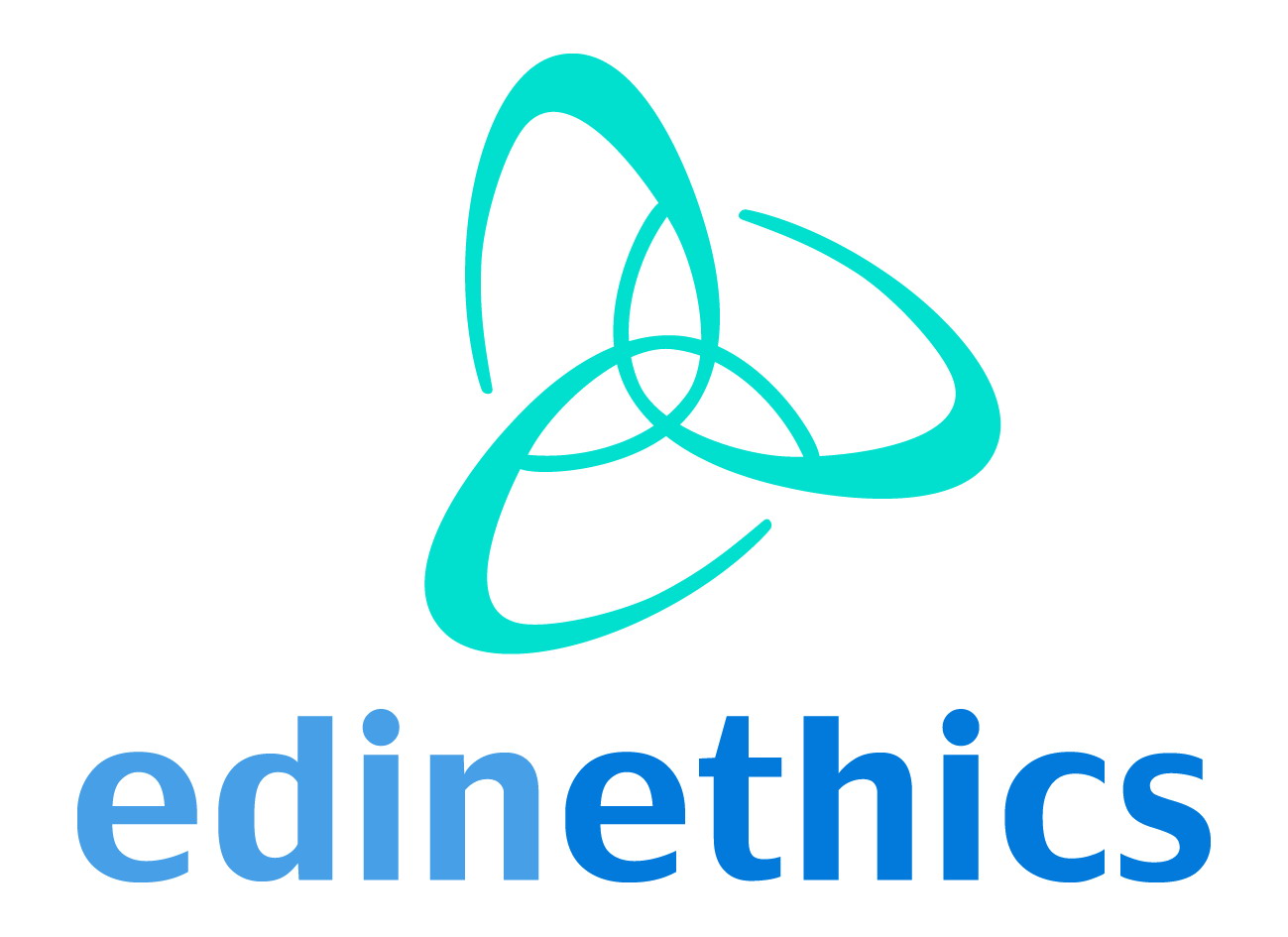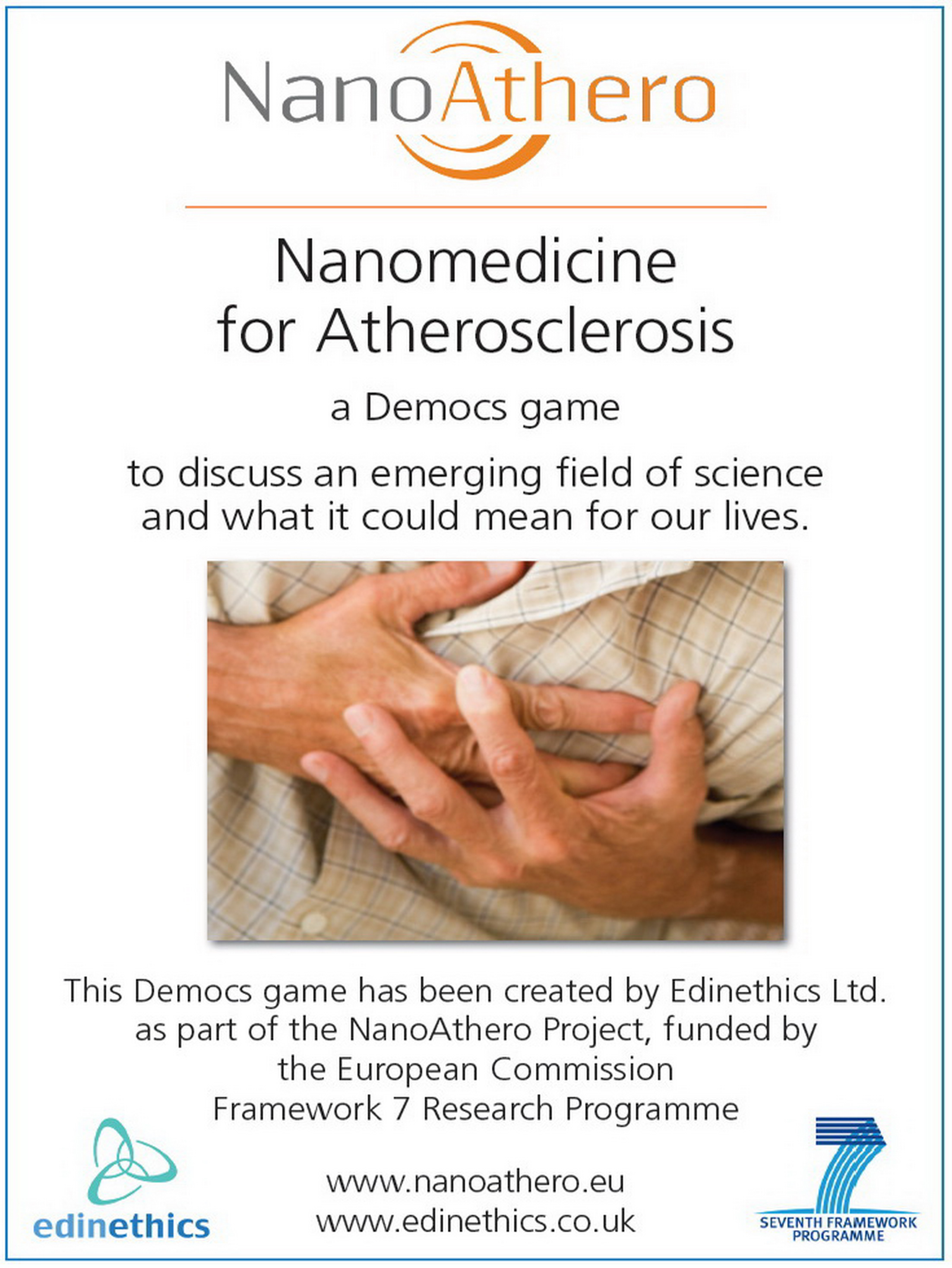Download the Game
Download:
You can download the whole game from this website, free, and print it out for yourself. You will need to download the following 7 files. We find light white card 120 - 160 gsm weight is easier to handle than ordinary paper. Check
what your printer can handle. There's quite a lot of cutting up to do. A guillotine may help.
Instructions
(1 booklet)
Story cards (1 set of 8 cards)
Info cards
(1 set of 32 cards on 4 A4 pages)
Issue cards
(1 set of 36 cards on 5 A4 pages)
Cluster cards
(1 set of 4 cards on 1 A4 page)
Voting Grid
(1 A4 sheet, 1 per game)
Feedback form
(1 per game)
These two set of cards are not essential to run the game, but can help:
Yellow cards
Blank cards
Post : The hard copy comes in a small box, with all the cards and full instructions. And it's free, as part of the EC research project. Send us your address and we'll post it to you :
Donald Bruce, Edinethics Ltd.,11/6 Dundonald Street, Edinburgh EH3 6RZ.
|
Once you've played the game : Results
There is a feed back form for you want to tell us who you are, where and when you played it, and what you thought about the game.
If we get enough games played and analysed it will give us an idea what people think about this as an issue. So we'd be very interested in the results - cluster cards, voting sheet and comments sheets. If you can send the results by post to : Donald Bruce, Edinethics Ltd.,11/6 Dundonald Street, Edinburgh EH3 6RZ.
We hope to have a feedback and results facility available on-line shortly.
If you have played the game and want to play it again with another group of people, you can re-use the Story, Information and Issue Cards, and the Instructions, but you will need to print out 4 new Cluster Cards, 1 Voting Grid, and enough Comment Sheets (1 each per player), and a Feedback form. You can Download them here:
Voting Grid
Cluster cards
Feedback form
Have Democs games been made on other subjects?
Yes! If you are interested, you will also find several Democs games on this website. A lot more games are available free to download on the PlayDecide website, created for the EC research projects (DECIDE and FUND).These have been created on different subjects from cloning to climate change, and in different languages.
|
What's the Issue?
What's Atherosclerosis?
Atherosclerosis is common heart disease which is the largest cause of death in Europe. Fatty deposits known as plaque build up in the arteries of most people through their whole adult life. In some people, these 'plaques' can become so thick that they can break off suddenly and block the passage of blood - either in an artery in the heart, causing a heart attack, - or in the neck artery leading to the brain, causing a stroke. The danger
is that most people in
this vulnerable condition
don't know that they are. Often the first sign is a heart attack or stroke happening with little or no warning, and then it's too late.
The NanoAthero Project
The NanoAthero project is a European Commission FP7 medical research project, which ran from 2013 until July 2018. It uses nanotechnology to develop ways
to test and treat people for unstable plaques and blood clots, caused by the heart
disease atherosclerosis. It has developed specially created nanoscale particles, small enough to enter body cells, which are specially coated to locate
any affected cells in the heart, which can be seen on MRI or CT scans. Other
nanoparticles have been made to encapsulate medicines to deliver them directly tothe damaged cells.
Nanomedicine and Publics
The project is an example of how nanotechnologies are becoming used in practical medicine, which is changing how people experience
health care: moving towards a more predictive medicine, rapid point-of-care
diagnostics, targeted and more ‘personalised’ medicines, remote monitoring ofvulnerable patients.
But nanotechnology is unfamiliar to many people. How safe are these tiny nano devices in my body? How much advanced warning do I want about my future health? Is it empowering me or just giving extra stress for my family? And who gets to see my data?
The NanoAthero project assessed ethical aspects as an integral part of its work. We are seeking to enter into dialogue with members of the public and patients. We want to know how they respond to the potential of nanomedicine, and, as part of the project, we have devised a Democs card game to help us do this.The purpose of the game is to ask members of the public like you
what you think about the issues involved. The game has been written by Donald Bruce of Edinethics Ltd, which was one of
the partners in the NanoAthero project.
|

